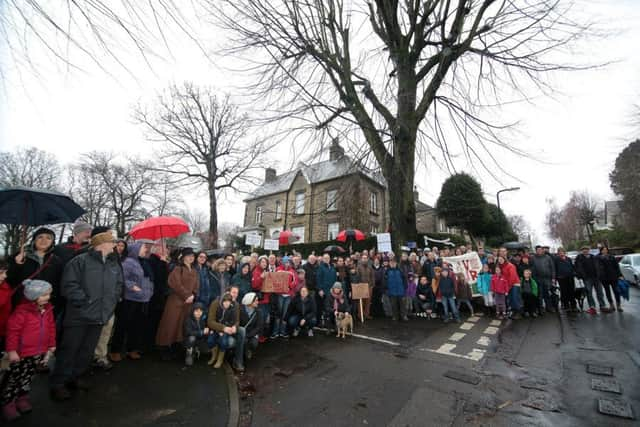David Behrens: Money at the root of ill will as council menaces tree protesters


In sending menacing letters to citizens – its very customers – who have been demonstrating against its policy of felling mature roadside trees in parts of the city, Sheffield Council has behaved as if it were being run by J Edgar Hoover.
The entirely justified outrage that accompanied the arrest of several protesters a few months ago led South Yorkshire’s crime commissioner to rule out a repeat. Prosecutors were not prepared to criminalise peaceful protesters, he said. So the council’s action in sidestepping all this and threatening people with civil action is quite beyond the pale.
Advertisement
Hide AdAdvertisement
Hide AdIt’s not hard to see why they are doing it – they spelled it out in a letter hand-delivered to residents. If the council suffered financial loss from their actions, it would take them to court to claw it back. “The sums could be significant,” the letter warned.
So, it’s all about money. But just who is paying whom?
At the root of the problem – no pun intended – is the Private Finance Initiative the council signed with a contractor for the maintenance of its streets, including trees. It runs for 25 years and is worth £2bn. PFI contracts such as this are effectively buy now, pay later agreements between the public and private sectors and have been derided almost universally. Yet local authorities continue to sign them, and with sometimes frightening levels of secrecy.
Sheffield, in particular, has been as transparent as a chip shop window at frying time. A Freedom of Information request by residents brought forth a copy of the contract with more crossings-out than a Conservative manifesto. So we don’t know, for instance, whether the council must pay penalties to its contractor in the event that its workmen cannot gain access to pavements and trees when they want.
What we do know is what the council considers the going rate for an individual job of work, and it’s hard to avoid the conclusion that the beneficiaries must be rubbing their hands. Last week, it put a price of £50,000 on preserving a rare mature elm tree that is home to a colony of critically endangered butterflies. It therefore proposed to take the cheaper option of cutting it down.
Advertisement
Hide AdAdvertisement
Hide AdIf the same tree had been not on a Sheffield roadside but in my back garden, and I had called in a firm of local experts to make it safe, they would have turned up with tools and a skip and sent me a bill in the low hundreds. There isn’t a contractor in the country who would wallop a householder with a bill for 50 grand, because no-one is gullible enough not to question it.
I asked Sheffield Council to break down the costs for me. £44,900, they said, to build a raised platform across the crossroads where the tree stands, plus £5,000 for “obligatory consultation and road safety audits”. Nearly £45,000 for a raised platform? I’m fairly sure my tree guys could do it for less.
There is a further anomaly: If I had even tried to chop down a tree of my own that had an endangered species living inside, I would have had council enforcement officers descending on me like locusts. I somehow doubt they would have accepted the same mitigation as the one Sheffield offered the concerned people of Nether Edge – that the creatures would be encouraged to breed elsewhere.
The central problem here goes deeper than the preservation of roadside trees and deeper even than the whole flawed business of PFI contracts. It is that the public sector has no idea how to secure value for money, and has convinced itself that, because of convoluted compliance protocols of its own invention, it no longer even has to try.
Advertisement
Hide AdAdvertisement
Hide AdFor £2bn, the council could have imposed a whole raft of requirements on its street contractor, which would have protected the environment and served the interests of the community. Instead, we must assume from its actions and the opacity of the contract that it was comprehensively out-negotiated, and is having to do a steamroller job on its opponents to defend its corner.
Nick Clegg, the former MP for this part of Sheffield, compared the whole episode to Putin’s Russia. He was dead right. Councils, need I remind you, are put there to facilitate the expectations of the public. Not vice versa.